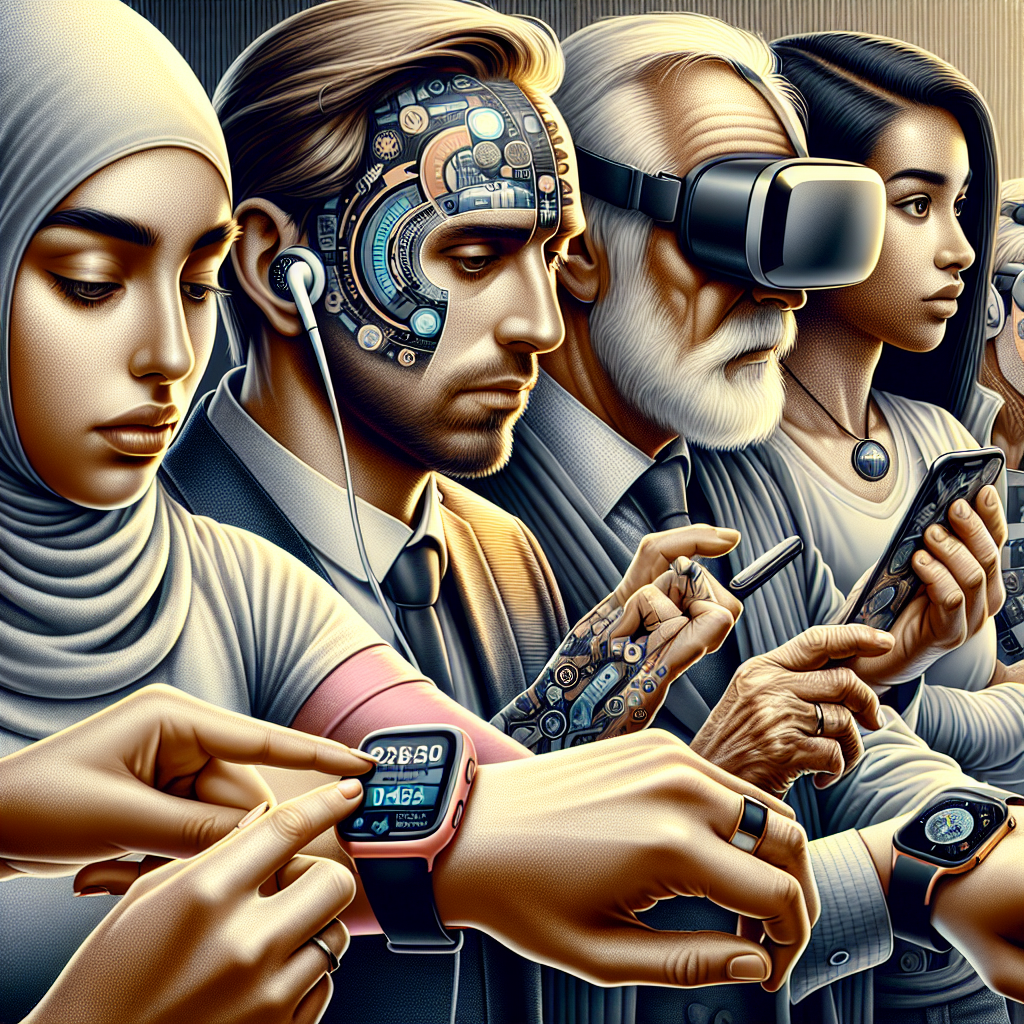
Introduction
Smart wearable devices have evolved beyond simple fitness trackers, becoming integral components in our daily lives. From healthcare to entertainment, these advanced gadgets are revolutionizing how we interact with technology and monitor our well-being. This article explores the latest advances in smart wearable devices, their applications, and future trends.
The Evolution of Smart Wearables
The market for smart wearable devices has grown exponentially over the past decade. Originally designed for niche markets like fitness enthusiasts, wearables have now permeated various aspects of our daily routines.
Early Beginnings
The journey of smart wearables began with simple step counters and heart rate monitors. These initial devices primarily targeted athletes and fitness enthusiasts looking to track their physical activity.
Integration with Smartphones
The next significant development was the integration of these devices with smartphones. Features such as notifications, GPS tracking, and music controls expanded their functionality beyond fitness.
Current Innovations in Smart Wearable Devices
The latest advancements in smart wearable technology continue to push the boundaries of what these devices can do.
Health Monitoring
Modern wearables now come equipped with advanced health monitoring capabilities including:
- ECG Monitoring: Devices can now measure electrocardiograms, allowing users to detect heart irregularities on the go.
- Blood Oxygen Levels: Sensors can measure SpO2 levels, offering insights into respiratory health.
- Sleep Tracking: Advanced algorithms analyze sleep patterns, providing tips for better quality of rest.
Fitness and Activity Tracking
Fitness tracking remains a core function of wearables. Today’s devices offer:
- Comprehensive Activity Tracking: Track everything from walking and running to swimming and cycling.
- Personalized Coaching: Artificial intelligence algorithms offer customized workout recommendations.
- Real-time Metrics: Instant feedback on heart rate, calorie burn, and more.
Communication and Productivity
Wearables are becoming increasingly adept at enhancing communication and productivity.
- Notifications: Receive emails, texts, and calls directly on your wrist.
- Voice Assistants: Integrated AI assistants like Siri and Google Assistant provide hands-free operation.
- Calendar and Task Management: Synchronize schedules and reminders for better time management.
Impact on Healthcare
One of the most promising applications of smart wearables is in the healthcare sector.
Preventative Care
Wearables enable early detection of potential health issues through continuous monitoring, thereby aiding in preventative care.
Chronic Disease Management
For individuals with chronic diseases such as diabetes or hypertension, wearables offer a convenient way to monitor vital health metrics consistently.
Telemedicine
The integration of wearables with telemedicine platforms allows healthcare providers to access real-time data, enhancing the quality of remote consultations.
Future Trends in Smart Wearables
The future of smart wearables looks promising, with several exciting trends on the horizon.
Augmented Reality (AR)
Augmented reality features integrated into wearables could offer immersive experiences and new ways to interact with information.
Enhanced AI Capabilities
Artificial intelligence will continue to play a significant role, with enhancements in machine learning algorithms providing more personalized experiences.
Flexible and Wearable Electronics
Advances in materials science could lead to more comfortable, flexible, and even textile-integrated wearables.
Conclusion
The advancements in smart wearable devices are transforming various aspects of our lives, from healthcare and fitness to communication and productivity. As technology continues to evolve, these gadgets will become even more integrated into our daily routines, offering unprecedented convenience and capabilities. The future of smart wearables is undoubtedly exciting, promising a more connected and efficient lifestyle.
Leave a Reply